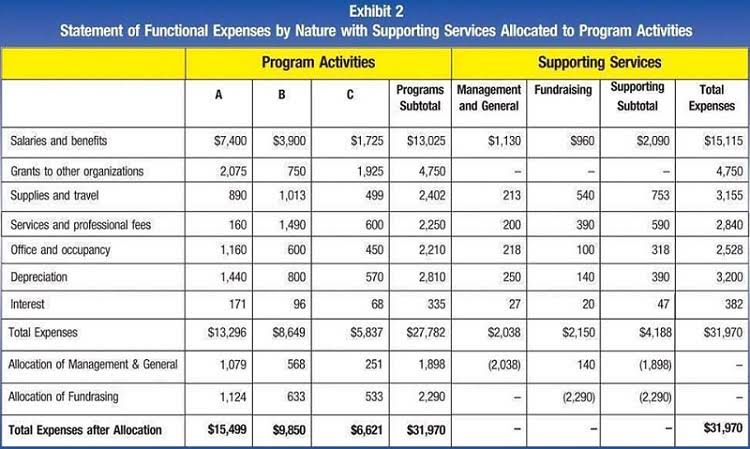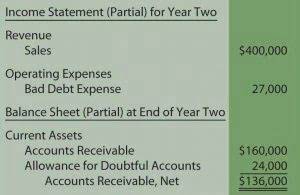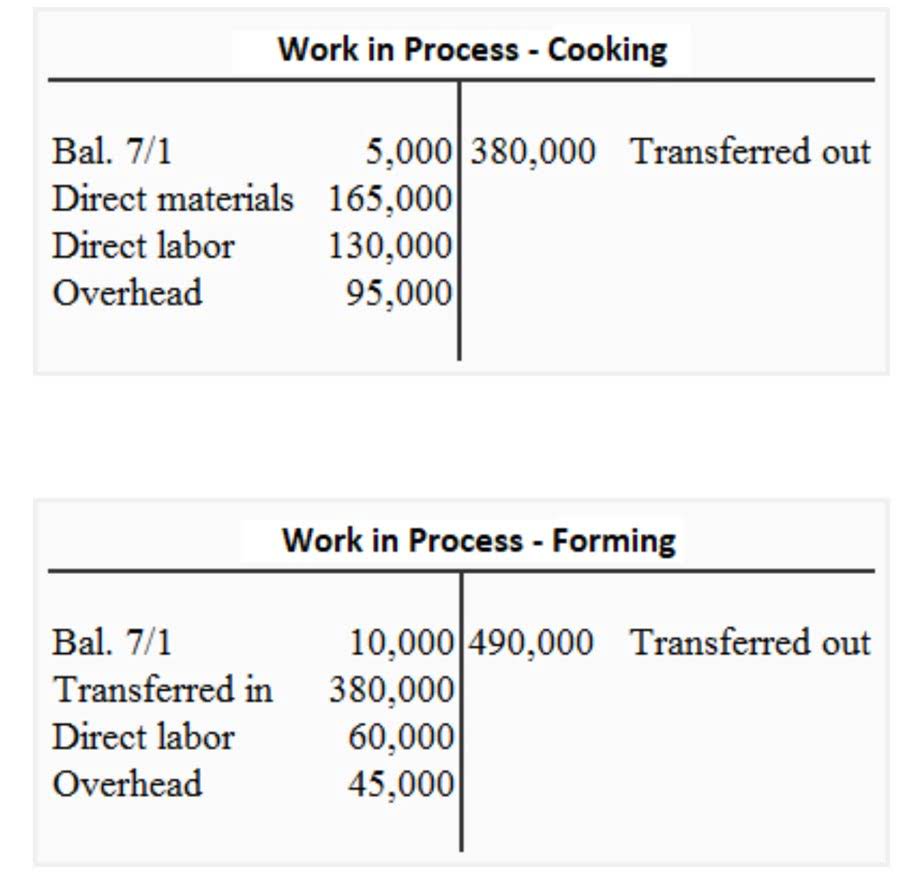
The second option is that the operator of the property is paid the entire amount by the purchaser of the oil or gas, and then the operator pays the tax to the government on behalf of the other interest owners. In a way, these arrangements are somewhat similar to how sales taxes are handled in other industries. In April 2020, the CAQ issued a publication with key considerations for upcoming filings. Accounting and financial reporting implications of COVID-19 may require companies to make significant judgments and estimates, https://www.bookstime.com/ which can be challenging in an environment of uncertainty. The publication contains questions on certain accounts and disclosures for management, auditors, and audit committees to consider. There are a lot of differences with oil, gas, and mining companies but the overarching ones are that they cannot control prices and that they have depleting assets that constantly need to be replaced.
- It truly depends on what a business determines to be the most important for their operations in any given situation.
- In some cases, the profit oil split may also be subject to renegotiation if certain production milestones or economic thresholds are met.
- This estimation process involves significant judgment and can impact the timing and amount of revenue recognized.
- The good news is that while bank and insurance modeling is almost a different game entirely, oil & gas modeling is more like a variation on a game you’re already familiar with.
- Certain services may not be available to attest clients under the rules and regulations of public accounting.
Downstream Accounting
Depletion, depreciation, and amortization (DD&A) are essential accounting practices in the oil and gas industry, reflecting the gradual consumption of capital assets over time. Depletion specifically pertains to the allocation of the cost of natural resources, such as oil and gas reserves, over their productive life. This is typically calculated using the unit-of-production method, which allocates costs based on the proportion of reserves extracted during a period relative to the total estimated reserves. The impairment assessment typically involves estimating the future cash flows that the asset is expected to generate, discounted to their present value. https://www.instagram.com/bookstime_inc Factors such as declining oil prices, increased operating costs, and changes in regulatory environments can trigger impairment reviews.

Oil and Gas Accounting: Key Principles and Practices
- When a reservoir is first discovered, there’s a certain amount of oil and gas in there, but not all of it is recoverable.
- GAAP and a public company auditor’s requirement under PCAOB auditing standards related to going concern.
- This is because, like the machinery used by a manufacturing company, oil and natural gas reserves are considered productive assets for an oil and gas company.
- Under the equity method, an investor recognizes its share of the joint venture’s net income or loss in its financial statements, reflecting its investment in the venture.
- By leveraging financial data, companies can make informed decisions regarding resource allocation and investment strategies.
- Adherence to financial reporting standards is paramount in the oil and gas industry, given the sector’s complexity and the significant financial stakes involved.
- When there are conflicts between different accounting principles or methods, a hierarchy exists to guide the selection of the most appropriate principle.
These requirements vary widely from state to state, and it’s important to have a system that can support these requirements and make compliance a breeze. As oil and gas reserves are extracted, companies need to allocate the costs of acquiring and developing these reserves over time. In the realm of oil and gas enterprises, the focal point invariably centers on how they handle their capitalized expenditures. Exploration and Production (E&P) companies that adopt the Successful Efforts accounting method channel their expenses towards success or failure, contingent upon the outcome of their drilling ventures – specifically, the production of hydrocarbons. In this update, we highlight some of the more important 2020 second quarter accounting, financial reporting, and regulatory developments that may impact oil and gas companies.
Should your business nearshore operations back to North America?

This section of the article guides readers through the key provisions of the new standard. Under the new guidance, most—if not at all—of those leases are now brought onto balance sheets. This is where a pipeline owner commits to taking a minimum amount of gas from a well site each month. In that case, as the name of the arrangement implies, the pipeline has to pay the producer anyways. The accounting treatment for these payments is that they’re recorded as a deferred credit, which is used to reduce the amount of payments made in other months when the pipeline takes more gas from the well site. We work with each client to determine a price model that is simple and aligned with their needs.

Key Accounting Considerations for Oil and Gas Companies

Generally Accepted Accounting Principles (GAAP) as set forth by the Financial Accounting Standards Board (FASB) when accounting in oil and gas industry managing the book of any company regardless of the size and whether a company is public or private. Additionally, it is essential to act with the utmost integrity, respect, and due diligence. PwC is a global leader in providing custom Oil and Gas Benchmarking services to fit the needs of our clients.
- It provides guidance on the recognition criteria, measurement, and disclosure of revenue in financial statements.
- Other costs, such as those pertaining to geological and geophysical exploration, are primarily recorded as expenses as they are incurred.
- So basically, the amount amortized in each period is directly related to the amount produced, so if the production level increases, so does the amortization expense.
- This method is typically used when the investor has significant influence but not control over the joint venture.
- Accurate JIB statements are essential for maintaining transparency and trust among joint venture partners.
- Under a PSC, the state grants an oil company the right to explore and produce hydrocarbons in a specific area, with the understanding that the company will recover its costs and share the remaining production with the state.
In SE, costs are capitalized based on whether the well is successful or not (i.e., hydrocarbons are produced). Oil and gas accounting is specialized, focusing on the unique financial intricacies of the energy sector, such as revenue tracking and tax compliance within exploration, extraction, and distribution processes. In the complex and dynamic oil and gas industry, oil and gas accountants play a crucial role in ensuring financial stability, compliance, and efficiency within oil and gas companies. As the energy sector continues to evolve, the demand for skilled accounting professionals who understand the intricacies of oil and gas accounting is ever-growing. This article delves into the significance of oil and gas accountants, their responsibilities, and best practices within the oil and gas industry. Valuation of reserves involves not just the quantity but also the quality of the hydrocarbons.
IRS announces reopening of ERC Voluntary Disclosure Program as many taxpayers receive denials
- Stakeholders rely on financial statements to assess the financial health of oil and gas companies.
- The two most prevalent methods are the equity method and the proportionate consolidation method.
- Then, you add up and discount everything based on the standard 10% discount rate used in the Oil & Gas industry (no WACC or Cost of Equity here).
- But before oil and gas companies develop new financial and commercial strategies, they first need to ensure that they are in compliance with the IFRS 16 and ASC 842 lease accounting standards.
- The good news is that most of the same valuation methodologies you’re used to seeing – public comps, precedent transactions, and even the DCF model – still apply to (most) oil, gas & mining companies.
- Then, you’d multiply the production volume times the average price each year for all commodities to get the revenue by year.
The accounting for AROs begins with the initial recognition of the obligation at the time the asset is installed or when the obligation is incurred. This involves estimating the future costs of dismantling and restoration, which are then discounted to their present value. The present value of these future costs is recorded as a liability on the balance sheet, with a corresponding increase in the carrying amount of the related asset. Over time, the liability is accreted, or increased, to reflect the passage of time, while the capitalized cost is depreciated over the useful life of the asset.
Variable consideration can include price adjustments based on market conditions, volume discounts, or performance bonuses. Companies must estimate the amount of variable consideration they expect to receive and include it in the transaction price. This estimation process involves significant judgment and can impact the timing and amount of revenue recognized. Advanced software tools like SAP S/4HANA and Oracle’s Oil and Gas Accounting solutions are often employed to manage these complexities, providing real-time data and analytics to support accurate revenue recognition. But before oil and gas companies develop new financial and commercial strategies, they first need to ensure that they are in compliance with the IFRS 16 and ASC 842 lease accounting standards. Each of these has its own unique set of departments that handle the various entries and procedures to ensure costs, revenue, and profits are accounted for properly.




